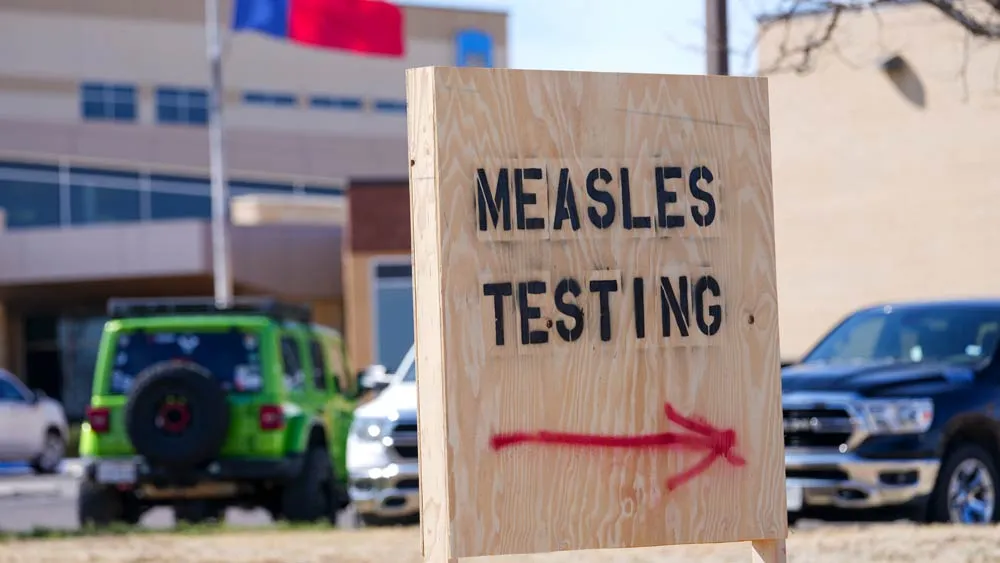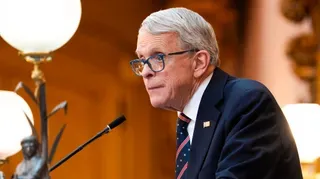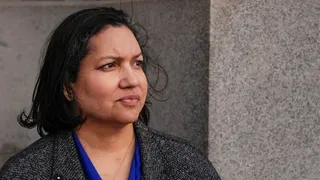January 22, 2008
Times Exposes Giuliani's Hard-Line Tactics Against Gay, AIDS Activists
Steve Weinstein READ TIME: 3 MIN.
Although his political career may be toast after the Florida Primary, the New York media has nevertheless been piling up on former GOP Mayor Rudolph Giuliani. The Village Voice, New York Magazine and The New York Times have all run several articles on Giuliani's personality, private life and politics. Now the Times has run a long, researched story on Giuliani's term as mayor-and his strong-armed tactics toward gay and AIDS groups, among many others.
"There were constant loyalty tests: 'Will you shoot your brother?' " Marilyn Gelber, a high-level appointee under Giuliani, told The Times. "People were marked for destruction for disloyal jokes."
Although Giuliani has said he prefers fighting with imposing opponents, The Times reported that, "As mayor, he picked fights with a notable lack of discrimination, challenging the city and state comptrollers, a few corporations and the odd council member. But the mayor's fist also fell on the less powerful."
One of those was the Hetrick-Martin Institute, one of the most respected groups promoting the welfare of LGBT youth in the world, and the overseer for the famous Harvey Milk School, the world's first public secondary school specifically geared for LGBT youth at risk.
Andy Humm, a long-time gay activist and journalst, worked for Hetrick-Martin with his colleague Ann Northrup at the time. Hetrick-Martin was trying to promote condom giveaways in public schools to fight the AIDS crises, which was then raging at full bore. Giuliani supported a parental "opt-out." The Times reported that the institute's director "counseled silence to avoid losing city funds." Humm said he was told, "We're going to say it's not good, but we're not going to mention him."
But that is nothing compared to mayor's protracted and expensive--it would eventually end up costing New York City taxpayers millions in fines and legal fees--war with Housing Works, the nation's most prominent organization advocating for housing for people with AIDS.
Housing Works, in tandem with AIDS activists such as ACT-UP, loudly challenged the mayor's policy toward homeless people with AIDS. The mayor's officials effectively sabotaged the group's application for a federal housing grant, which until then had been considered pro forma. "A caseworker who spoke of missteps in the death of a child was fired. After unidentified city workers complained of pressure to hand contracts to Giuliani-favored organizations, investigators examined not the charges but the identity of the leakers," The Times reports.
Members of Housing Works and their allies held a huge march near City Hall in 1998. The police placed snipers atop City Hall during the march and monitored it by helicopter, even though the widespread opinion was that the marchers were peaceful. Many cited it at the time as part of the mayor's strong-arm tactics toward dissenters of any stripe.
The Times describes the mayor's "war" with Housing Works as "operatic" in scope. The mayor was then involved in a huge dispute with AIDS groups, because he wanted to do away all together with the city's Division of AIDS Services.
Giuliani "systematically killed $6 million worth of contracts with the group, saying it had mismanaged funds," the paper reports. Housing Works ended up suing the city. In the course of discovery it came to light that the mayor's administration had rescored a federal evaluation form to ensure that the group lost a grant from the Department of Housing and Urban Development.
The city's homeless commissioner denied wrongdoing but acknowledged that his job might have been forfeited if Housing Works had obtained that contract. "That possibility could have happened," Mr. Oesterreich told a federal judge.
"The culture of retaliation was really quite remarkable," said Matthew D. Brinckerhoff, the lawyer who represented Housing Works, told The Times. "Up and down the food chain, everyone knew what this guy demanded."
Steve Weinstein has been a regular correspondent for the International Herald Tribune, the Advocate, the Village Voice and Out. He has been covering the AIDS crisis since the early '80s, when he began his career. He is the author of "The Q Guide to Fire Island" (Alyson, 2007).







